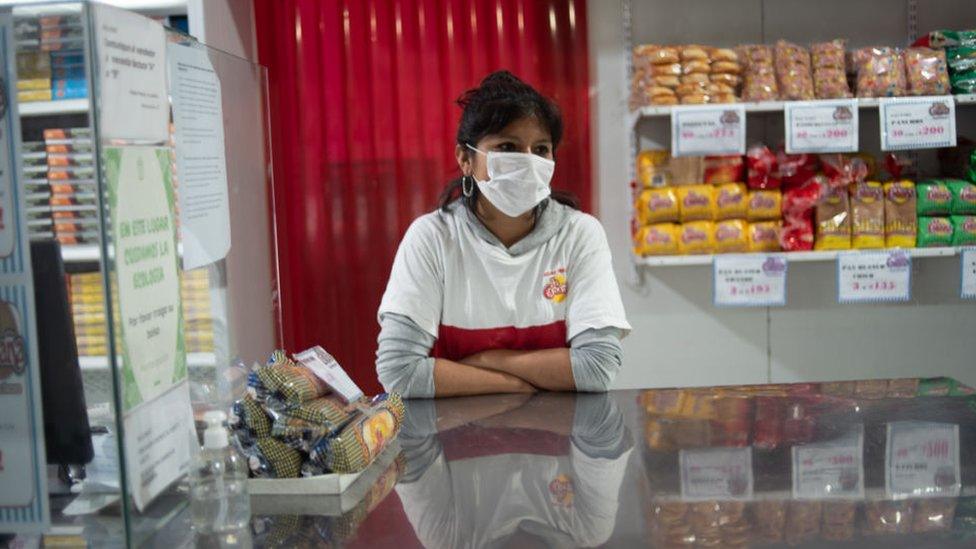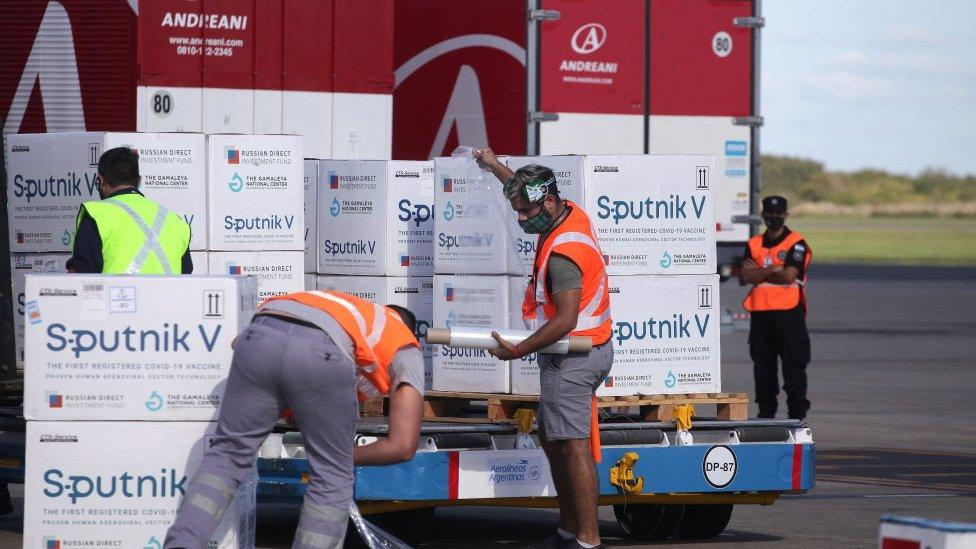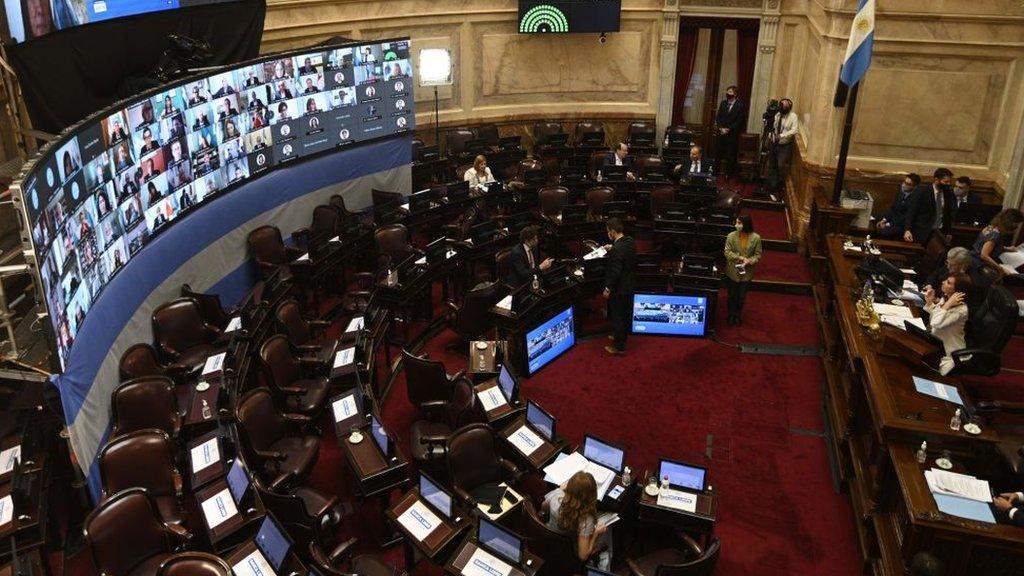Covid: Argentina starts new lockdown as cases soar
- Published

Essential food businesses are allowed to open during the nine-day shutdown
Argentina has begun a new nine-day lockdown amid a resurgence of coronavirus cases and a slow vaccine rollout.
President Alberto Fernández said the country was experiencing its worst moment of the pandemic.
It has recorded more than 35,000 new cases a day during the past week.
On Friday, Latin America and the Caribbean passed one million coronavirus deaths, almost 30% of the global total.
Nearly 90% of those fatalities have been recorded in five countries: Brazil, Mexico, Colombia, Argentina and Peru.
Argentina's new lockdown allows supermarkets and essential businesses to remain open, but in-person school lessons will be suspended. Restaurants can only operate home delivery and pick-up services, and people may only go out until 18:00, staying in the vicinity of their home.
The government encouraged people to alert the authorities if they noticed their neighbours gathering or having parties.
The restrictions are operating for a relatively short period amid concerns about the impact on the informal workforce and poorer households with limited internet access.
Argentina's economy contracted nearly 10% last year, partly due to the lockdown.
"I am aware that these restrictions create difficulties," said President Fernández. But he added: "Faced with this reality, there is no choice but to choose the preservation of life."

Argentina was one of the first countries outside to strike deal with Russia to use its Sputnik V vaccines
The country imposed one of the world's longest quarantines last year, running from March to July. At times even exercise and dog-walking were not allowed. Borders were closed early and commercial flights into the country were banned for seven months.
Nonetheless it has seen 3.4 million registered cases and 73,000 deaths in total. Earlier this week, the daily death rate hit a new domestic record of 745 people, while intensive care wards have hit their highest occupancy level since the pandemic began.
The rampant Brazilian variant is said to be behind the current outbreak.
The president has promised economic assistance for sectors hit by the new restrictions. He also said that more than five million doses of AstraZeneca and Sputnik V vaccines were on their way.
More than 10 million vaccine doses have been administered within a population of 45 million. In March, officials delayed the rollout of second doses to allow more people to receive their first.
Bureaucratic problems and lack of supplies have reportedly been causing the slowdown.
Uruguay - which borders Brazil and Argentina - has also been badly hit in the latest wave of cases, despite being largely praised for its handling of the initial outbreaks.
With a population under 3.5 million, Uruguay had the world's highest death toll per capita in recent weeks, according to data from Oxford University's Our World in Data project.

You may also be interested in:
One epidemiologist in Brazil fears the country is "becoming a threat to global public health".
Related topics
- Published5 July 2022

- Published5 December 2020
